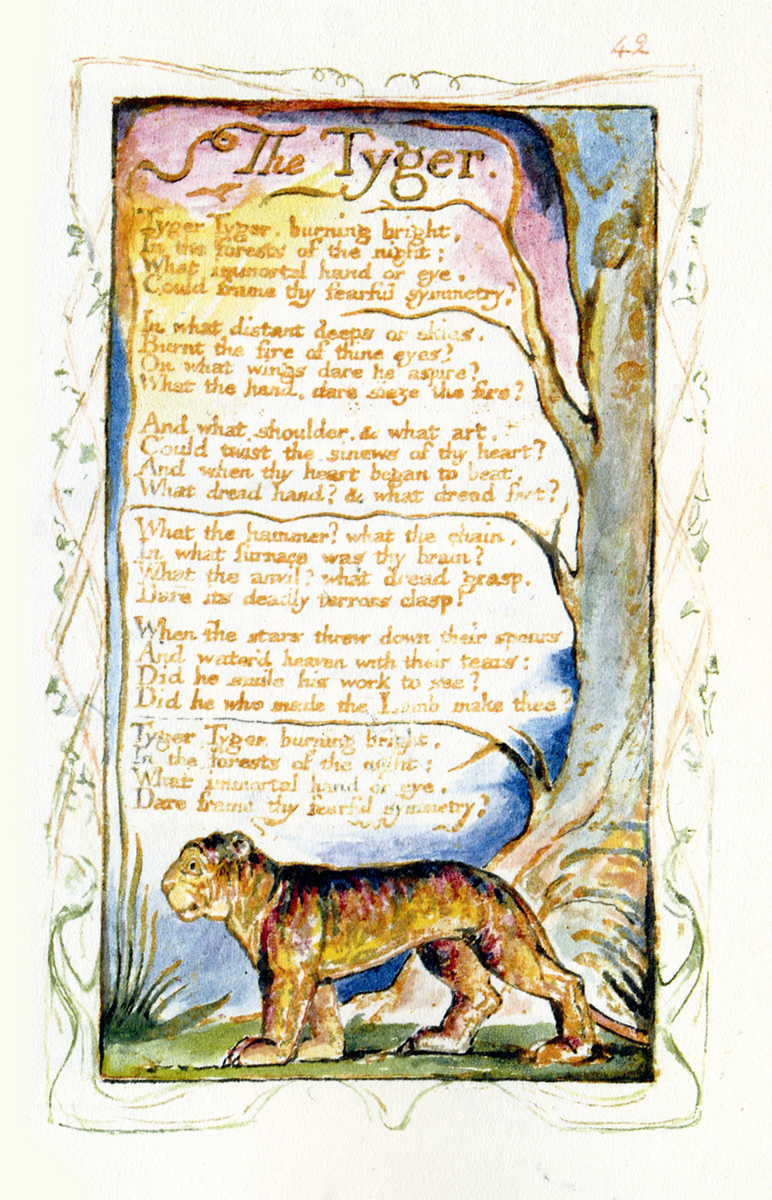I was asked to clarify on “ideas code for attitudes” from my previous.
Tyger! Tyger! Burning bright
In the forests of the night
What immortal hand or eye
Could frame thy fearful symmetry?
This is one of William Blake's Songs of Experience, of course. Now these poems are interesting exercises in “spot the player,” or, as Blake puts it, “portraying” a certain “state of the human soul.” You have to figure out who is speaking these lines.
And the best answer anyone comes up with is: a near-cynical coward, awestruck by the idea of a horrifying mechanical universe created by an angry, if not downright evil, God.
In other words, the poem is a lie in the form of the truth. Tigers are fierce and scary. True. But (at least according to Blake himself) the Universe is not a horrifying mechanism. How can we tell Blake is playing with us here? Look at the illustration above. That's not a horrifying beast. That's a cuddly toy.
That's the trouble with ideology: it's a lie in the form of the truth. All ideological statements are like the Liar (“This sentence is false”) in that they allow you to hold an attitude along with a set of truths, an attitude that may even contradict the truths. (“We had to destroy the village in order to save it“ is a pretty extreme example.)
Literary critics love Hegel because they do exactly the same thing as he does: they identify the narrator of the text.
Still not sure? Think of an ad. The ad sells you a product. But it does this in an indirect way, by selling you an attitude. So an SUV ad sells you some kind of masculinity combined with some kind of couch potato TV watching mentality. Out there, in Nature, watching it flow past you like on TV, through the windows of your gigantic SUV.
The best, shortest version of this I ever saw was a motorbike ad in the 70s: “Free with every bike: you.” When you buy the bike, even when you think about buying the bike, you are buying into an attitude.
William Burroughs: the dealer does not sell junk to the junkie, but vice versa.
The Liar relies on the fact that “I” am not “I.” I do not coincide with myself, either in sentences or outside of them. So Hegel's idea that ideas bundle attitudes is intrinsically hard if you cleave rigidly to the law of noncontradiction.

No comments:
Post a Comment